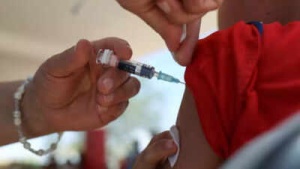Dengue fever, a mosquito-borne viral infection transmitted primarily by the Aedes aegypti mosquito, poses a significant public health challenge in India. The infection, which can manifest in a range of symptoms from mild to severe, is particularly dangerous for individuals with compromised immune systems, and the country accounts for a substantial portion of the world's 100–400 million annual cases. Now, there is hope on the horizon as India's first dengue vaccine approaches the final stages of testing, with Phase 3 trial enrollment nearing completion.

Dengue fever is caused by the bite of infected Aedes mosquitoes. The illness can present with high fever, severe headaches, joint and muscle pain, and a potentially perilous drop in blood platelet count. In severe instances, dengue can escalate to bleeding, organ failure, and even death. Children and the elderly are particularly vulnerable to the most severe forms of the disease.
Developing a safe and effective dengue vaccine has been a long-standing challenge for scientists. One of the primary obstacles is the existence of four distinct serotypes of the dengue virus. An effective vaccine must provide protection against all four to be considered successful. Some vaccines developed internationally have demonstrated mixed results and have not achieved widespread adoption.
The dengue vaccine currently under development in India, named "TetraVax-DV," is being spearheaded by the Serum Institute of India (SII). This vaccine is specifically engineered to combat all four serotypes of the dengue virus. Similar to other vaccines, TetraVax-DV utilizes a weakened form of the virus to stimulate the body's immune system and equip it to fight off dengue infections. Since the vaccine does not contain a live virus, it cannot cause the disease itself.
Before any vaccine can be approved for widespread use, it must successfully navigate several phases of clinical trials:
Phase 3 is critical as it determines whether the vaccine can effectively prevent dengue in a real-world setting.
Phase 3 trials for India's dengue vaccine commenced in 2023 and are being conducted across more than 20 sites throughout the country, encompassing both urban and rural areas. The trials aim to recruit over 10,000 volunteers, representing a diverse range of backgrounds, including children and adults. Enrollment is nearing completion, and preliminary results have been promising.

The next steps in the process involve:
India faces a significant burden of dengue cases annually. Outbreaks strain healthcare facilities and inflict suffering on countless families. A safe and effective vaccine has the potential to:
While the vaccine offers hope, it is still important to take steps to prevent dengue by protecting oneself against mosquito bites, covering drains and eliminating standing water.
Newer articles
Older articles
 Esha Gupta Sets Record Straight: Actress Addresses Hardik Pandya Dating Rumors
Esha Gupta Sets Record Straight: Actress Addresses Hardik Pandya Dating Rumors
 Google Maps to Boost Navigation Accuracy with Fused Orientation Provider API
Google Maps to Boost Navigation Accuracy with Fused Orientation Provider API
 Global Vaccination Rates Plunge: Millions of Children Now Vulnerable to Preventable Diseases
Global Vaccination Rates Plunge: Millions of Children Now Vulnerable to Preventable Diseases
 Rishabh Pant: Greg Chappell Hails India Star as Cricket Revolutionary
Rishabh Pant: Greg Chappell Hails India Star as Cricket Revolutionary
 Skin Cancer Alert: How to Identify Suspicious Moles and Early Warning Signs
Skin Cancer Alert: How to Identify Suspicious Moles and Early Warning Signs
 Gavaskar Calls for Kuldeep Yadav's Inclusion in Second Test Amid Bumrah Fitness Concerns
Gavaskar Calls for Kuldeep Yadav's Inclusion in Second Test Amid Bumrah Fitness Concerns
 Is Daily Pooping a Must? Understanding Bowel Regularity and When to Worry
Is Daily Pooping a Must? Understanding Bowel Regularity and When to Worry
 Suryakumar Yadav's Sports Hernia: Understanding the Injury, Recovery, and Risk Factors for Athletes
Suryakumar Yadav's Sports Hernia: Understanding the Injury, Recovery, and Risk Factors for Athletes
 Vijay Sethupathi Apologizes Amid Controversy Over Son Surya's Debut Film 'Phoenix' and Alleged Video Removal Pressure
Vijay Sethupathi Apologizes Amid Controversy Over Son Surya's Debut Film 'Phoenix' and Alleged Video Removal Pressure
 Install Baccarat Hack Tool: The Secret to Winning
Install Baccarat Hack Tool: The Secret to Winning